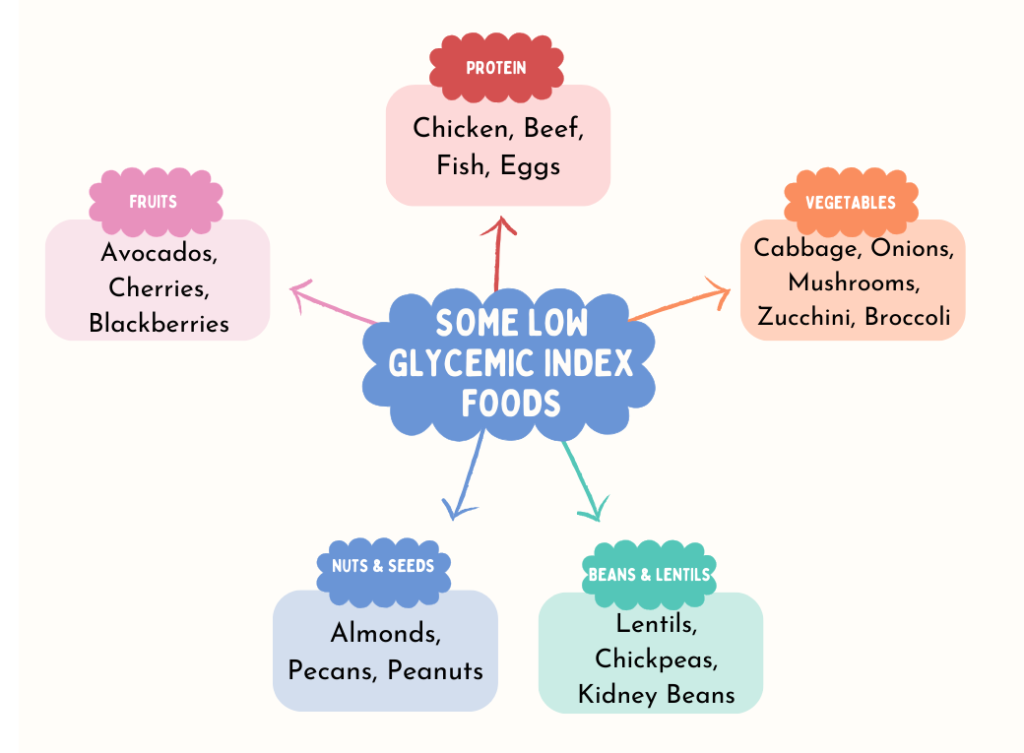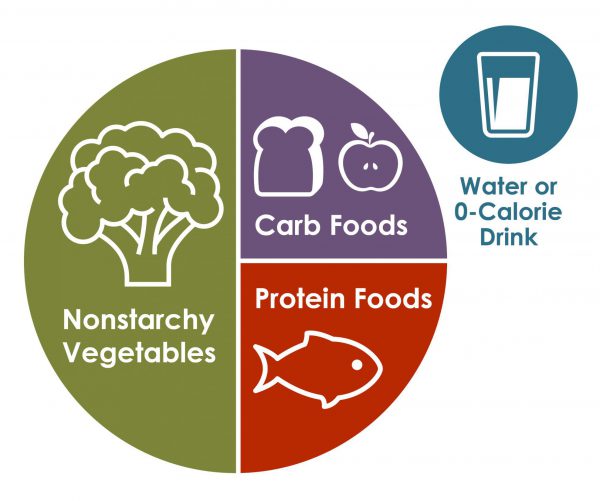
Are you staring down the possibility of living out the rest of your life as a diabetic? Managing diabetes naturally can help you to live a full, enjoyable life that doesn't have to be all about meds and doctor's visits.
Let’s explore some simple, natural ways to keep things in check. First off, try tweaking your diet to include foods that don't spike your sugar levels too much, and try adding more protein. You may find that small changes can really make a difference.
And hey, moving around more can do wonders too—not just for your mood but also helps in keeping those sugar levels nice and balanced.
And don’t forget about stress, that ever-present shadow. Finding your chill through deep breaths, meditation, or just shaking it off with some physical activity can work wonders.
What about natural remedies? Things like cinnamon and magnesium could boost your insulin sensitivity, which might sound too easy, but it’s actually pretty amazing.
Keeping an eye on your sugar levels yourself can really be empowering. Some simple tools and regular checks could let you take control of your own health.
By leaning into these natural ways alongside what your doc suggests, you’re not just managing diabetes naturally; you’re improving your overall well-being. Cool, right? Let's look at managing diabetes naturally so we can help you find what works for you so you can feel better on your terms.
Disclaimer: The content in this article is for informational purposes only and should not be considered a substitute for professional medical advice. Please consult with a healthcare provider about any diabetes related issues that concern you.
Key Takeaways

Benefits of Managing Diabetes Naturally
Why is managing diabetes naturally beneficial for your overall health and well-being?
When you take a natural approach to managing diabetes, you aren't only controlling your blood sugar levels but also improving your overall health in numerous ways. By incorporating lifestyle changes such as regular exercise, a balanced diet, and stress management techniques, you can positively impact your diabetes and reduce the risk of complications.
Engaging in physical activity helps your body utilize insulin more effectively, lowering blood sugar levels. Additionally, exercise helps in maintaining a healthy weight, reducing the risk of heart disease, and improving overall well-being.
Importance of a Balanced Diet
A balanced diet plays a crucial role in managing diabetes naturally by providing essential nutrients that help you regulate blood sugar levels and promote overall health. When you have diabetes, you can't afford to not watch what you eat to keep your blood sugar levels stable.
Incorporating a variety of foods rich in fiber, such as whole grains, fruits, vegetables, and legumes, can slow down the absorption of sugar and prevent spikes in blood glucose levels.
Foods high in protein, like lean meats, fish, tofu, and beans, can help maintain steady blood sugar levels throughout the day.
Moreover, healthy fats found in sources like avocados, nuts, seeds, and olive oil can improve insulin sensitivity and reduce the risk of heart disease, a common complication of diabetes. Avoiding sugary beverages, processed snacks, and high-fat foods is crucial in managing diabetes effectively.
Eating foods with a low glycemic index can help prevent type 2 diabetes by making the body more sensitive to insulin.
So, What's the Glycemic Index Anyway?
Imagine you've got a scoreboard for foods that tells you how fast they shoot up your blood sugar after eating them. That's the Glycemic Index for you! It's a scale from 0 to 100, where foods are ranked based on how they affect your blood sugar levels. High GI foods make your blood sugar zoom up quickly, while low GI foods give you a slow and steady rise.
Why Should You Care About the GI?
Here's the scoop: the GI isn't just about numbers and charts; it's about keeping you healthier. The battle against diabetes risk and its progression depends largely on understanding the effects of dietary carbs. It's all about the glycemic index and load of foods, which are measures of how they affect blood sugar levels.
By picking foods with a low GI, you can keep your blood sugar levels from doing a rollercoaster ride, which is critically important for managing diabetes, keeping your heart healthy, and even helping you manage your weight. It's like having a secret weapon for a healthier life.
When you opt for natural remedies like consuming foods with low glycemic index, you're promoting stable blood sugar levels and reducing the need for medications. Research shows that certain herbs and supplements can also aid in managing diabetes naturally by enhancing insulin sensitivity and reducing inflammation.

Ready to make the Glycemic Index work for you?
Ready to make the GI work for you? Here are some pro tips for weaving low-GI foods into your meals:
- Choose Whole Grains Over White Bread: Swap out those refined carbs for whole grains. They're not just packed with nutrients but also have a lower GI, which is great for your blood sugar.
- Fruits and Veggies Are Your Friends: Most fruits and veggies are low on the GI scale, so load up your plate with a rainbow of these goodies.
- Don't Forget About Legumes and Nuts: These guys are not only nutritious but also have a low GI, making them perfect for snacking or adding to meals.

Medical Nutrition Therapy (MNT)
If you need help balancing your diet, medical nutrition therapy (MNT) provided by a registered dietitian can really make a difference in diabetes management (Diabetes Journals) (Commonwealth Care Alliance).
Medical Nutrition Therapy is a tailored approach to managing various health conditions, including diabetes, through personalized nutrition plans. It involves the assessment of an individual's dietary habits, lifestyle, medical history, and specific health needs, followed by the development and implementation of a customized nutrition plan by a registered dietitian or healthcare professional.
The following benefits of Medical Nutrition Therapy are especially important for people with diabetes:
- Managing Blood Sugar: Keeping blood sugar levels in check is a top priority for those living with diabetes, as it's key to avoiding the severe side effects of the condition. MNT offers a customized approach to nutrition, focusing on how to balance blood sugar through smart choices about how much and when to eat carbs, along with managing portion sizes and snack timing. It's all about fine-tuning your body's sugar levels to prevent both spikes and drops, safeguarding against the dangers of too high or too low blood sugar.
- Avoiding Additional Health Issues: Having diabetes means there's a higher chance of encountering severe health problems, including heart and kidney diseases, nerve damage, and vision issues. A well-thought-out diet is central to dodging these complications. MNT puts the spotlight on a diet filled with fruits, vegetables, whole grains, lean meats, and good fats, aiming to keep your blood pressure, cholesterol, and weight under control to minimize the risk of these diabetes-related complications.
- Handling Weight: Weight management can be a struggle for those with diabetes, as carrying extra weight can make insulin resistance worse, leading to further heart health concerns. MNT tailors strategies for either losing or maintaining weight, focusing on the quality and quantity of calories and encouraging nutrient-rich food choices. Keeping weight in a healthy range helps in better managing diabetes and boosting overall health.
- Carb Knowledge: Since carbs significantly affect blood sugar levels, understanding how to manage carbohydrate intake is a cornerstone of effective diabetes management. MNT teaches about carb counting, the glycemic index and load, and the timing of meals, empowering individuals to make educated decisions about their carb consumption. This know-how allows for more precise control over diabetes and the ability to adjust one's diet as necessary.
- Taking Charge: MNT enables those with diabetes to actively participate in their health care through education and counseling with dietitians or diabetes educators. This process teaches essential skills for making smart food choices, understanding nutrition labels, and monitoring blood sugar levels independently. Armed with this knowledge, individuals feel more capable and confident in making healthful adjustments to their eating habits and lifestyle, leading to improved health and quality of life.
Individualized meal planning
You know that you need protein, fiber, healthy fats, whole grains, fruits, vegetables and legumes, but what should that look like when mealtime comes?
You need a plan.
This is where a registered dietician or healthcare provider can help, but with some basic understanding you can also do this yourself. Methods of meal-planning for diabetics and pre-diabetics include The Plate Method, Reduced Carbohydrate Eating Plan, Plant-Based Meal Plan, and The Mediterranean-Diet Meal Plan.
The Plate Method
The Diabetic Plate Method is a simple and effective way for people with diabetes to manage their blood sugar levels while enjoying balanced and nutritious meals. It involves visually dividing your plate into sections to ensure you're getting the right mix of nutrients without overloading on carbohydrates, which can cause spikes in blood sugar.

Here's how it works: Imagine your plate divided into three sections: one half for non-starchy vegetables, one quarter for lean protein, and one quarter for carbohydrates. Non-starchy vegetables include options like leafy greens, broccoli, peppers, and cucumbers, which are low in carbohydrates and high in fiber, vitamins, and minerals. These veggies fill up half of your plate and provide essential nutrients without significantly affecting blood sugar levels.
The next quarter of your plate is reserved for lean protein sources such as chicken, fish, tofu, or legumes. Protein helps to keep you feeling full and satisfied while supporting muscle health.
Finally, the remaining quarter of your plate is for carbohydrates like whole grains, starchy vegetables, or fruit. Choosing high-fiber, complex carbohydrates helps to slow down the release of glucose into the bloodstream, preventing sharp spikes in blood sugar.
By following the Diabetic Plate Method, individuals can create balanced meals that promote stable blood sugar levels and overall health.
The Reduced Carbohydrate Eating Plan
Reducing carbohydrate intake can be an effective strategy for managing diabetes, as it helps control blood sugar levels and may even lead to weight loss. A reduced carbohydrate eating plan for diabetics focuses on limiting the amount of carbohydrates consumed while still ensuring a balanced and nutritious diet. Instead of relying on high-carb foods like bread, pasta, and sugary snacks, this plan encourages the consumption of whole foods that are rich in protein, healthy fats, and fiber.
In this eating plan, emphasis is placed on non-starchy vegetables, such as leafy greens, broccoli, and peppers, which are low in carbohydrates but high in vitamins, minerals, and antioxidants. Protein sources like lean meats, fish, eggs, and tofu are also prioritized, as they help promote satiety and stabilize blood sugar levels. Healthy fats from sources like avocados, nuts, seeds, and olive oil are included to provide essential nutrients and support overall health.
By reducing carbohydrate intake and focusing on nutrient-dense foods, individuals with diabetes can better manage their blood sugar levels and improve their overall health. It's important for individuals to work with a healthcare provider or registered dietitian to develop a personalized eating plan that meets their specific needs and lifestyle preferences. Additionally, monitoring blood sugar levels regularly and adjusting the eating plan as needed can help individuals achieve better diabetes management and overall well-being.

Plant-Based Meal Plan
A plant-based meal plan for diabetics can be an excellent way to manage blood sugar levels while enjoying a variety of delicious and nutritious foods. By focusing on whole, plant-based foods like fruits, vegetables, whole grains, legumes, nuts, and seeds, individuals with diabetes can take control of their diet in a way that promotes overall health and well-being.
One key aspect of a plant-based meal plan for diabetics is to prioritize high-fiber foods. Fiber helps slow down the absorption of sugar into the bloodstream, which can prevent spikes in blood sugar levels. Incorporating plenty of fiber-rich foods such as broccoli, spinach, berries, quinoa, lentils, and chia seeds can help keep blood sugar levels stable throughout the day. Additionally, choosing complex carbohydrates over simple carbohydrates can further aid in blood sugar management. Instead of refined grains like white bread and pasta, opt for whole grains like brown rice, whole wheat bread, and oats, which provide sustained energy without causing sharp increases in blood sugar.
Another important aspect of a plant-based meal plan for diabetics is to pay attention to portion sizes and meal timing. Eating smaller, more frequent meals throughout the day can help prevent large fluctuations in blood sugar levels. It's also important to pair carbohydrates with protein and healthy fats to slow down digestion and minimize the impact on blood sugar. For example, enjoying a snack of apple slices with almond butter or hummus with carrot sticks can provide a balanced combination of nutrients to keep blood sugar levels steady. Overall, adopting a plant-based meal plan for diabetes can offer numerous health benefits beyond just blood sugar management, including improved heart health, weight management, and increased energy levels.
The Mediterranean-Diet Meal Plan
The Mediterranean diet has long been celebrated for its health benefits, and for diabetics, it can be particularly beneficial in managing blood sugar levels while promoting overall wellness. This meal plan revolves around the traditional eating habits of countries bordering the Mediterranean Sea, emphasizing whole foods, healthy fats, lean proteins, and plenty of fruits and vegetables.
To tailor this diet to diabetic needs, focus on incorporating foods with a low glycemic index, which means they won't cause spikes in blood sugar levels. Start your day with a balanced breakfast, such as Greek yogurt topped with fresh berries and a sprinkle of nuts, or whole grain toast with avocado and a poached egg. For lunch and dinner, center your meals around vegetables, legumes, and lean proteins like fish or poultry. A colorful salad with grilled chicken or a hearty vegetable soup with lentils are excellent options.
Snacking is also important, but opt for nutritious choices like raw vegetables with hummus or a piece of fruit paired with a small handful of nuts. And don't forget about the importance of hydration—water should be your beverage of choice throughout the day. With its emphasis on fresh, whole foods and balanced meals, the Mediterranean diet can be a delicious and effective way for diabetics to manage their condition and improve their overall health.
Book Recommendations:
- “The Low GI Diet Revolution” by Dr. Jennie Brand-Miller – A comprehensive guide on understanding and implementing a low-glycemic-index diet.
- “Good Carbs, Bad Carbs” by Johanna Burani – Explains the differences between carbohydrate types and their effects on health.
- “The Diabetes Code” by Dr. Jason Fung – Offers insights into preventing and reversing type 2 diabetes through dietary interventions.
Note: As an Amazon Associate, we earn a commission from qualifying purchases, including the recommended books above. This is at no additional cost to you, and it helps us continue to bring the best information and recommendations to you.

Incorporating Regular Exercise for Managing Diabetes Naturally
Lack of physical activity is the fourth leading risk factor for death according to the World Health Organization (WHO). WHO also states that consistent physical activity is proven to help prevent and manage heart disease, stroke and diabetes.
Engaging in physical activity helps lower blood sugar levels by increasing insulin sensitivity, allowing your body to use glucose more effectively. Activities such as walking, cycling, swimming, and strength training are recommended for at least 30 minutes a day, five days a week. Additionally, strength training exercises 2-3 times a week will build muscle mass, which can further accelerate glucose metabolism.
Starting an exercise routine can help lower A1C levels by an average of 0.3 to 0.6 percentage points.
Exercise not only helps in controlling blood glucose levels but it can help lower blood pressure, improve cholesterol levels, and boost mood and energy levels.. Exercise plays a big role in weight management and improving overall well-being.
Individuals taking insulin or other diabetes medications should remember to monitor their blood sugar levels before, during, and after exercise to prevent hypoglycemia (Mayo Clinic) (Hopkins Medicine).
Remember to consult with your healthcare provider before starting any new exercise regimen, especially if you have been inactive or have other health concerns. Start gradually and listen to your body to prevent injuries and make exercise a sustainable part of your diabetes management plan.
Stress Management Techniques
To effectively manage your diabetes naturally, it's important to address stress through practical techniques that promote emotional well-being and overall health. Managing stress is crucial as it can affect blood sugar levels and overall health. Here are some evidence-based stress management techniques that can help you in your diabetes management journey:

| Stress Management Techniques | Description |
|---|---|
| Deep Breathing Exercises | Helps in reducing stress and calming the mind. |
| Mindfulness Meditation | Focuses on being present in the moment, reducing anxiety. |
| Physical Activity | Regular exercise helps in reducing stress levels. |
| Yoga | Relaxes and lowers stress. |
| Progressive Muscle Relaxation | Involves tensing and relaxing each muscle group to reduce stress. |
| Journaling | Writing down thoughts and feelings can help in processing stress. |
Incorporating these techniques into your daily routine can assist in managing stress levels and improving your overall well-being while naturally managing your diabetes.
Stress management is an often overlooked but vital component of managing diabetes.
Stress can have a significant impact on blood glucose levels. Techniques such as deep breathing exercises, meditation, having a support system, and engaging in hobbies or activities that reduce stress can be beneficial. Educating oneself about diabetes and joining a support group or class can also provide the knowledge and confidence needed to manage the condition effectively (Diabetes.org).
Natural Remedies and Supplements
Natural remedies and supplements play a significant role in complementing traditional diabetes management strategies by offering additional support in maintaining blood sugar levels and overall health. Some natural remedies that have shown promise in managing diabetes include cinnamon, bitter melon, fenugreek, and chromium. These remedies may help improve insulin sensitivity, reduce blood sugar levels, and decrease the risk of diabetes-related complications.

There are also specially formulated blends of the above remedies in just the right proportions to be most effective. For example, Plantsulin uses extracts from 11 different herbs and plants to increase GLUT4 in the body, helping transport glucose to muscle and fat cells and helping to regulate insulin.
Additionally, certain supplements like alpha-lipoic acid, magnesium, and vitamin D can also be beneficial for individuals with diabetes. Alpha-lipoic acid, for example, is an antioxidant that may help reduce oxidative stress and improve insulin sensitivity. Magnesium plays a crucial role in glucose metabolism and insulin action, while vitamin D deficiency has been linked to an increased risk of developing diabetes.
Before incorporating any natural remedies or supplements into your diabetes management plan, it's essential to consult with your healthcare provider. They can provide guidance on the appropriate dosages, potential interactions with medications, and monitor your progress to ensure these additions are safe and effective for you.
Monitoring Blood Sugar Levels
Monitoring your blood sugar levels is a crucial aspect of effectively managing diabetes and ensuring optimal health outcomes. Regularly checking your blood glucose levels helps you understand how your body responds to different foods, activities, medications, and stress levels. By tracking these levels, you can make informed decisions to keep your blood sugar within the target range recommended by your healthcare provider.
There are various methods to monitor blood sugar levels, including self-monitoring using a glucometer, continuous glucose monitoring (CGM) systems, and periodic lab tests like the A1C test. Self-monitoring with a glucometer involves pricking your finger to obtain a small blood sample for immediate glucose level readings. CGM systems provide real-time glucose readings throughout the day, offering valuable insights into trends and patterns that can guide your management plan.

Consistently monitoring your blood sugar levels empowers you to make timely adjustments to your diet, exercise routine, and medication regimen, ultimately helping you maintain stable blood sugar levels and reduce the risk of diabetes-related complications.
Conclusion
So, there you have it – managing diabetes naturally isn't only possible, but it can also greatly improve your overall health and well-being.
By incorporating a balanced diet, regular exercise, stress management techniques, natural remedies, and monitoring your blood sugar levels, you can take control of your diabetes in a holistic way.
But don't forget to work with your doctor or other healthcare provider to stay on top of your diabetes or pre-diabetes. Only your healthcare provider has the expertise to know if these techniques are working well enough for you, or if your body also needs supplements, more serious drug therapy or other medical intervention.




